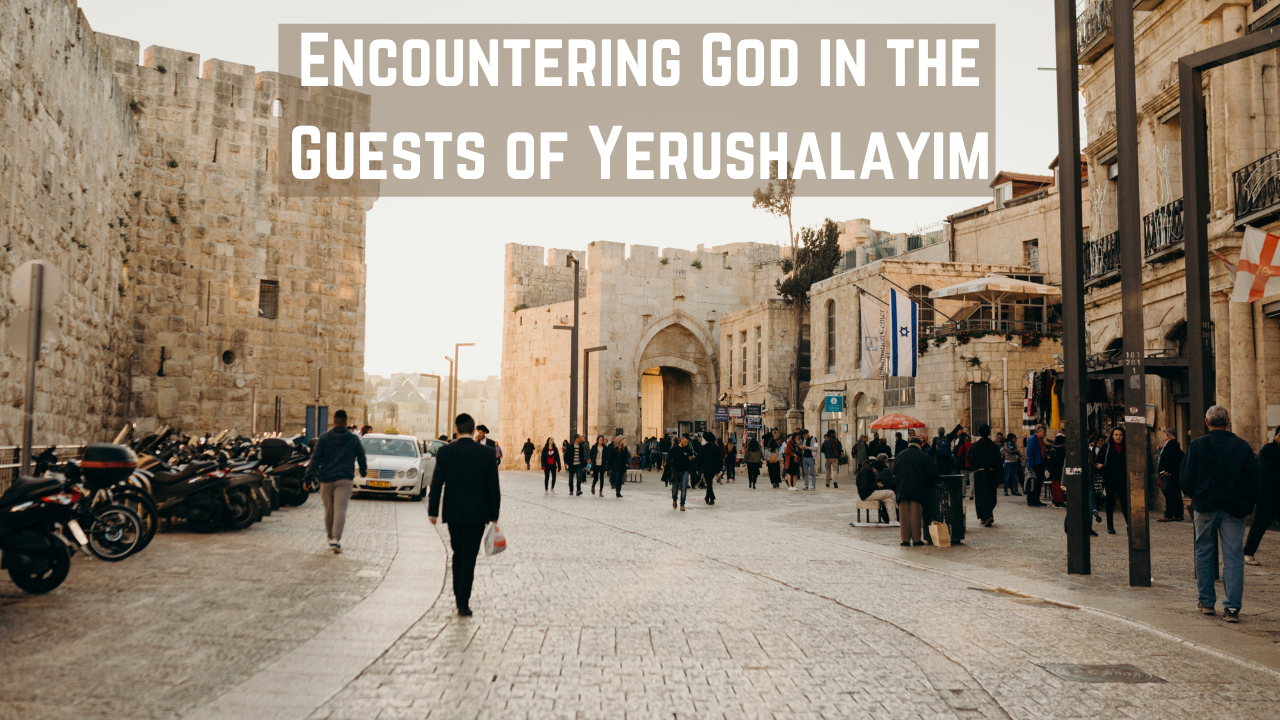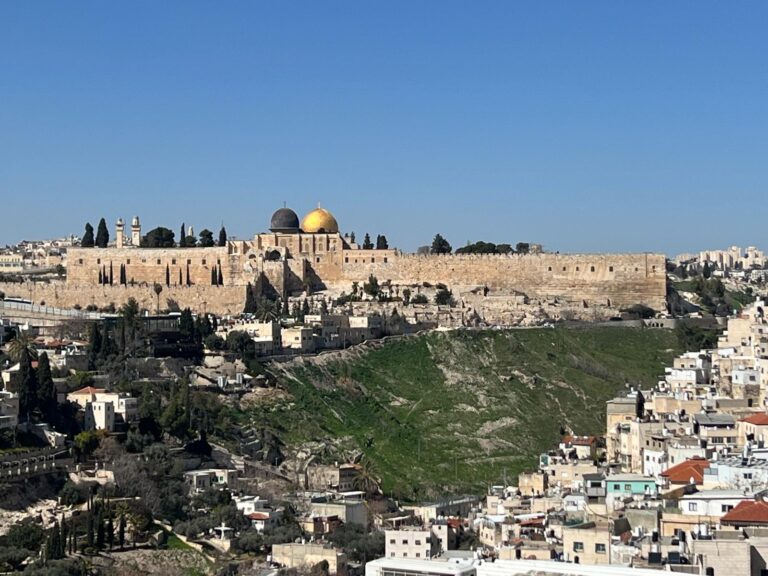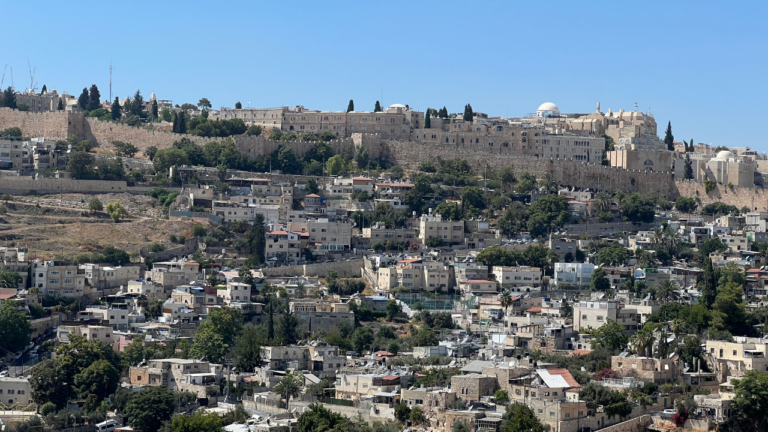Encountering God in the Guests of Yerushalayim
This week’s parsha begins with an anomaly. God appears to Avraham who is sitting by at the entrance of his tent. Suddenly, Avraham seems to abandon God by running towards the three travelers. Bothered by this seeming lack of respect to God, the Talmud concludes from this story that “Bringing guests into one’s home is greater than being in the Divine Presence.”
What is the meaning of this statement? Why should Avraham prioritize people over God Himself? Rabbi Yaakov Nagen explains that Avraham was not abandoning God over people, but was actually engaging a higher revelation of divinity. He cites a teaching of the Zohar that the ideal place to find the divine presence in this world is within other people. The divine spark, the “image of God” which exists in other human beings makes every encounter with another person into an encounter with a concentrated form of the divine presence in our world. Accordingly, by greeting his guests, Avraham was simultaneously engaged in human kindness and greeting a high revelation of God.
Perhaps this connection between inviting guests to one’s home and encountering God explains a unique feature of the Jewish community in Yerushalayim. The Talmud in Bava Batra teaches:
And similarly, Rabban Shimon ben Gamliel would say: There was a great custom in Jerusalem that if one gives raw materials for a meal to another to prepare the meal for him, and that person spoils it, that person gives the former compensation for his humiliation and compensation for the humiliation of his guests.
In other words, the person who was supposed to prepare the meal, would have to pay for the embarrassment of the host who did not have the food with which to feed his guests.
The Eil Eliyahu notes that the Talmud refers to this as a “great” custom. This implies that it was building off of a custom that was admirable but not yet reaching the level of “great.” He explains that the people of Yerushalayim excelled at inviting and hosting guests. All throughout the year they greeted pilgrims with open arms and let them into their homes. This was the “regular” custom of the people of Yerushalayim.
The above passage teaches us that an additional custom that goes above and beyond this excellence in inviting guests is that they cared so much about this mitzvah that they made a person compensate a potential host who was embarrassed over the fact that he was unable to properly feed his guests.
What led the Jews of Yerushalayim to cherish this mitzvah of hosting guests to this degree? Perhaps one approach is based on the lesson derived from Avraham. The people of Yerushalayim were especially attuned to the divine presence in this world due to their proximity to the Beit HaMikdash. They realized, similar to Avraham, that this sensitivity to Godliness can be best expressed in greeting other human beings and caring for them. In this sense, God is not only in the Beit HaMikdash, but also in the day to day encounters that we have with our fellow human.



